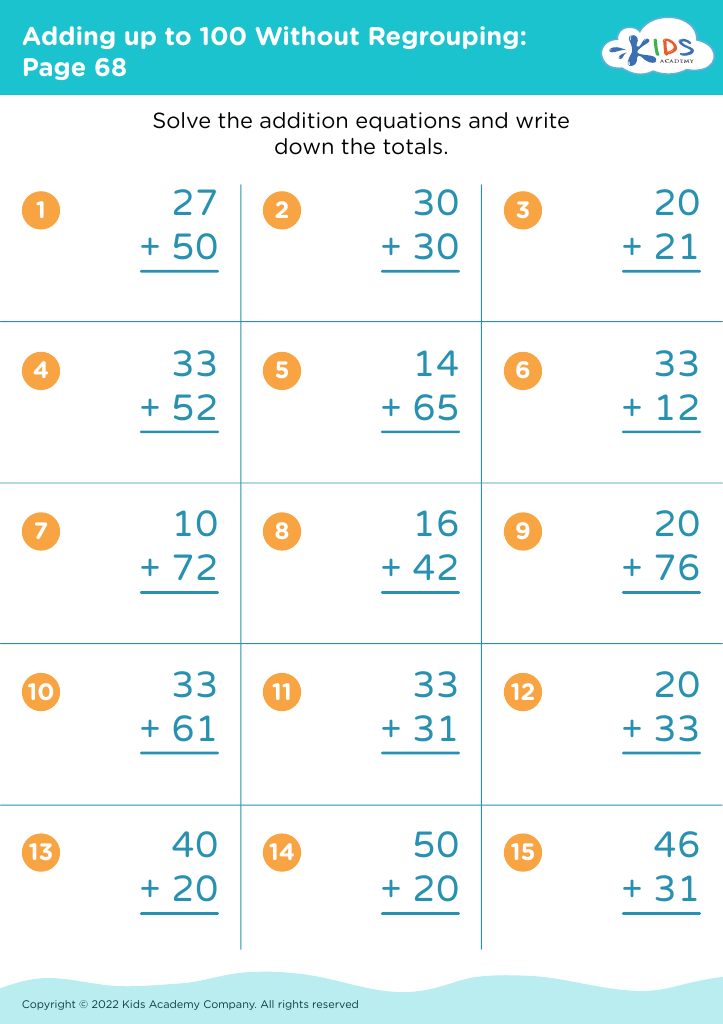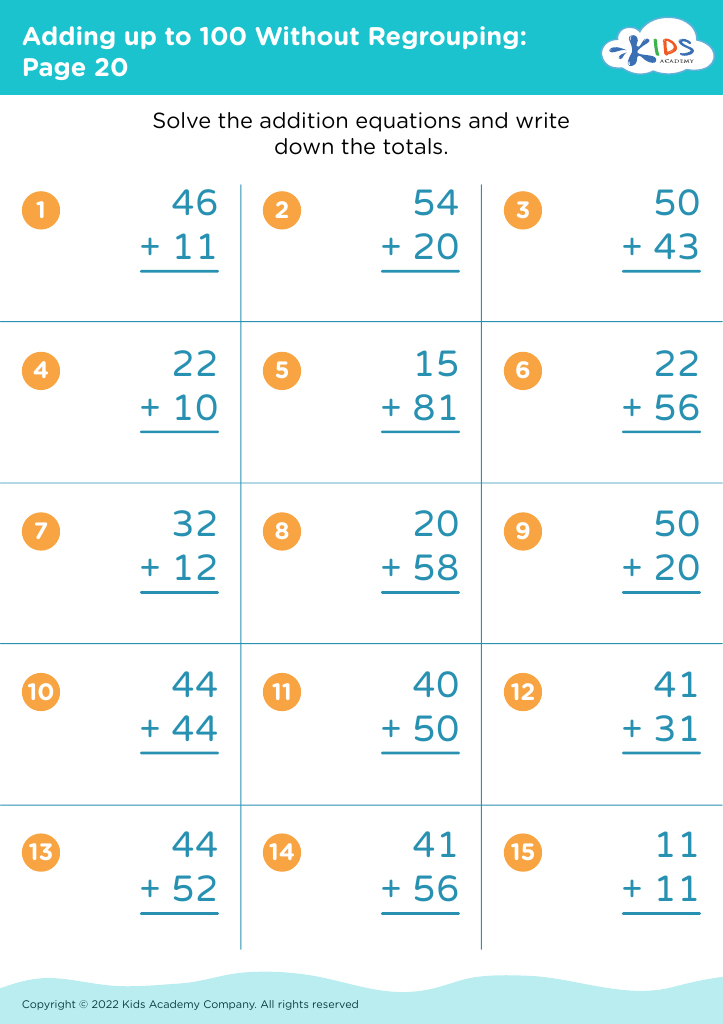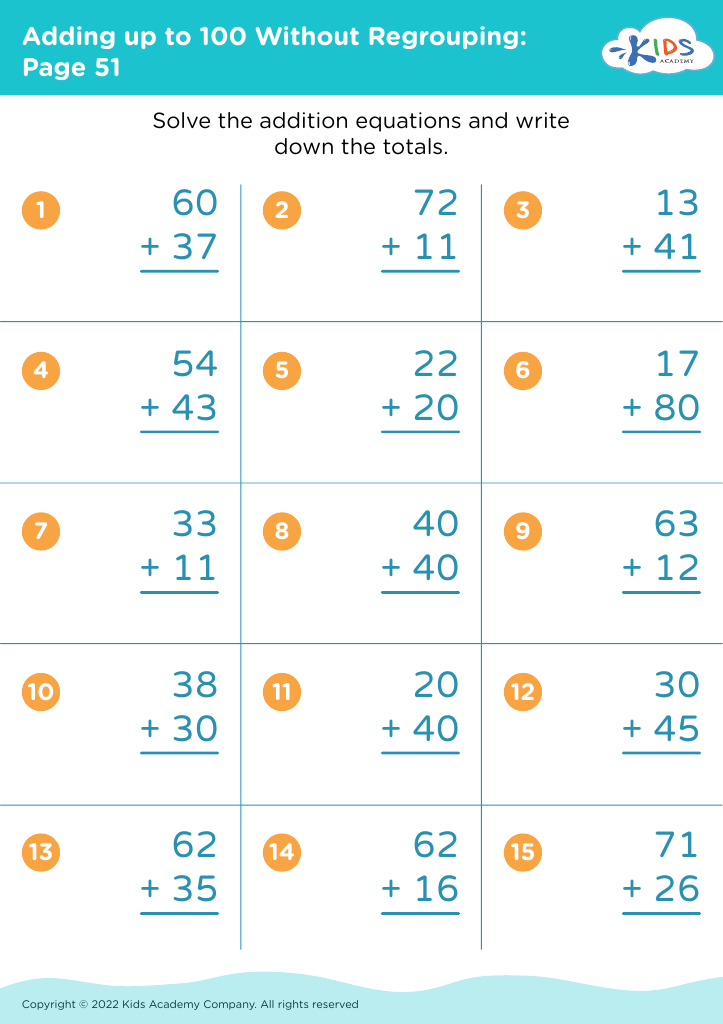Practicing multiplication Adding up to 100 Worksheets for Ages 4-7
4 filtered results
-
From - To
Enhance your child’s math skills with engaging "Practicing Multiplication Adding up to 100" worksheets, perfect for ages 4-7. These fun and educational printables from Kids Academy focus on building a solid foundation in multiplication while reinforcing addition skills. Each worksheet provides a variety of problems designed to challenge and entertain young learners, helping them to grasp and practice essential concepts. Ideal for use in classrooms or at home, these worksheets are an excellent resource to inspire a love for math and boost your child’s confidence in their abilities. Visit Kids Academy to download and start learning today!
For children aged 4-7, honing math skills such as practicing multiplication and adding-up to 100 forms a crucial part of their cognitive and academic development. At this vital stage, young minds are particularly receptive to new information, which sets a strong mathematical foundation for later learning. Engaging in multiplication and addition exercises reinforces critical thinking and problem-solving skills that are essential for academic success across subjects.
Practicing these math skills also promotes an understanding of patterns, helping to develop logical reasoning. This, in turn, enhances a child's ability to solve more complex problems as they progress through school. Moreover, mastering basic arithmetic boosts confidence when faced with math-related tasks, which can foster a positive attitude towards learning.
Teachers and parents can make these exercises fun and relatable through interactive games and real-world applications, such as counting objects or measuring ingredients. This practical approach not only makes learning enjoyable but also shows how math is relevant in everyday life. Investing the time to support young learners in developing these skills enriches their overall educational experience and equips them with the tools to achieve future academic goals. Therefore, emphasizing early-life multiplication and addition practices provides lasting benefits that extend well beyond the classroom.









%20(1).jpg)













